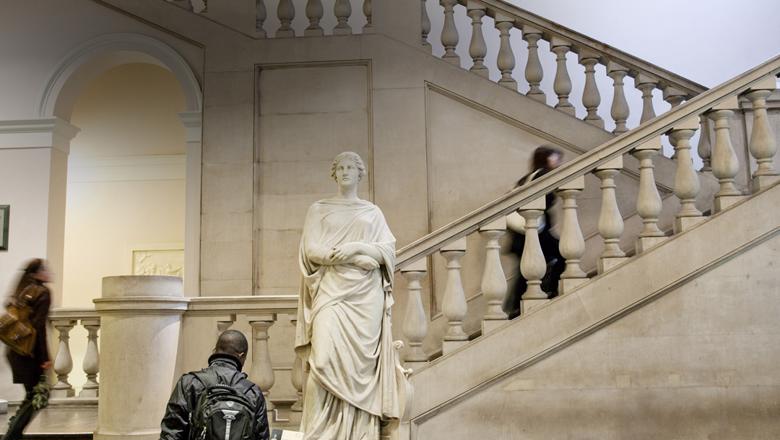Staff writer Ben Evans examines in detail the causes of this winter’s teacher strikes.
Education is crucial. Our schools craft the economy of tomorrow and are our strongest tool in the fight to boost social mobility. Teachers are the key workers that deliver this vital public service. They shape lives by providing foundational knowledge about academics and everyday life skills. Hundreds of thousands of these hardworking professionals aim to provide all children with the opportunity to succeed, the benefits of which are unquantifiable. From a more productive economy to lower crime rates, a richer culture to a culture of civic engagement, there are many advantages of a strong education system.
Sadly, it has become the neglected institution of this government. The many benefit of educations have been allowed to dissipate. The recent teacher strikes that occurred at the beginning February and that may go ahead again in March should be attributed to the degradation of our schools over any other cause. It is key to focus on demands from the teachers as the issues that affect them directly and indirectly impact the children in our schools. This dispute does involve pay, but it is about so much more than that. This action is to save a profession and ultimately to give the children of Britain the chance they deserve.
This may sound melodramatic, but a look into the statistics does reveal some shocking truths at the heart of our schools. These can be divided into a two prolonged assaults on teachers: pay and working conditions.
Pay has been a long-standing issue, present since the election of the coalition government in 2010. Schools carried a heavy burden from the austerity measures enacted by George Osbourne as Chancellor of the Exchequer, like many of our public services. A report by the Institute for Fiscal Studies stated that spending on schools per pupil fell by 8% in real terms between 2009/2010 and 2018/2019. This has driven a huge crunch on budgets and resulted in stagnating teacher pay (especially higher up the leadership scale), leading to recruitment issues with teaching assistants and huge waiting lists for support required by those with special educational needs (even before the pandemic).
To give a sense of the scale of the challenges faced by teachers on pay, new teachers have received a real terms cut of 5% since 2010, but for experienced heads and deputy heads this could be up to a 13% real terms cut over the past 13 years. Compared to similarly developed economies, who experienced sustained real terms increases in pay, this is a severe failing. This has resulted in an overall recruitment shortfall across the sector compared to the loosely held government targets, for secondary school teachers. The website School Week estimated this shortfall may be as high as 40%. Only fuelling the vicious cycle by increasing the already demanding workload forced upon existing teachers.
For teaching to remain a sustainable profession, pay must be improved. All teachers require a university degree, so many forgo potentially far higher private sector wages in order to give back to the next generation. Of course they are often happy to do so, with many getting fulfilment from this vocation. But this should not be abused by slashing wages – instead teaching should be held in high regard and honoured with respectful pay.
Presently, the government’s pay offer would see teachers receive only a 5% nominal salary increase, but even this has a caveat. It would come from school budgets, and force teaching staff to pay themselves instead of buying resources for educating (taking from funds that are already limited). This fits into the consistent theme of this government’s policy failings. Who pays the price? the children.
This leads us on to the second deep rooted problem within education; the long hours teachers have to work and the wide variety of tasks their profession is now comprised of. The new role of ‘teacher’ has been moulded by the structural reform of education that has occurred over the past 20 years. This reform can be characterised by the term ‘endogenous privatisation’, which is when publicly owned organisations are made to act as private ones. Beginning with the New Labour government, and sped up under Michael Gove’s tenure as Education Secretary, there has been a strategy of marketisation and academisation driving this shift.
Primarily, we must return to the policy of austerity. Local Authorities (LAs) are regional coordinating bodies that traditionally shaped local education policy and resources. They provided support and funding to schools – in return schools in a certain region shared certain standards. These LAs were hit very hard by the public spending cuts following the financial crisis and could not afford to provide the same level of support to local schools. Instead these services were provided by the private sector in the name of ‘efficiency’. School meals, pay-roll, and special educational support all were passed into private hands.
Secondly, the policy of academisation sought to shift control from LAs to new Multi Academy Trusts (MATs), which are collections of schools that handle their own affairs. The theory behind this policy was that the supposedly most effective MATs would be desirable for schools to join, creating a ‘marketplace’ of schools trying to out-compete each other by offering more support or perks for joining. Since the 2000s, more than 8,000 schools have academised teaching over 4 million students annually; this is certainly the new normal in education.
Despite a lot the media coverage concerning the issue of pay, an equally important demand of teachers is the removal of Ofsted and its replacement with a fairer and less demanding system of checks. Of course a system of standardised monitoring for schools is necessary, however the current one is highly inducive of stress for staff and the vetting system has stretched the resources of schools thinner and thinner. The constant evolution of the evaluation framework and curriculum expectations to follow the political trends and desires of the day has led to an increasing number of specifics targets that need to be met, with very few additional resources given to support schools.
It is right that our education system evolves with changing times, but adding further demands on teachers will inevitably exacerbate the existing administration and mental health challenges facing staff, impact the quality of teaching in other areas. This is only evidenced further when one looks at the retention rate for teachers – a report by The Education Magazine (TES) found that in April 2022 secondary teacher vacancies were at a five year high and this is only being exacerbated by the increased challenges.
Even prior to the pandemic, the National Education Union (NEU) released the alarming statistic that 1 in 5 teachers would leave the profession within 3 years. We are now simply facing the consequences of government inaction. It is this huge increase in responsibility without support that has been behind the NEU’s strike demands, primarily the removal and replacement of Ofsted and a pay rise that doesn’t diminish their budgets.
“Even if you offered me a million pounds or two million pounds I wouldn’t take on headship.”- David Wilson (Deputy Head, Greater Manchester)
The point of this article is not to assess whether the reforms of the previous 20 years increased standards or lowered them, and in some areas these policies have been a success. Nor is it even to assess the ethics of such reforms (which the free school meals debate often touches on). This article simply underscores the radical shift in the ethos of education that has taken place in our schools over the last decade.
Schools now operate as firms more than they ever have before, through school leaders negotiating with private companies, having to pitch their schools to attract support and flesh out their own policies on standards in the face of heightened and overbearing scrutiny. This job appears to belong in a boardroom over any classroom – many teachers, who were trained to teach children, it is an alien existence. Maybe with the awful disruption caused by the strikes, and further knowledge about these alarming conditions, education may just receive the attention and reform needed to bring it back from the brink. This isn’t just a fight for the Britain of today, it’s for how we wish to shape the Britain of tomorrow.













